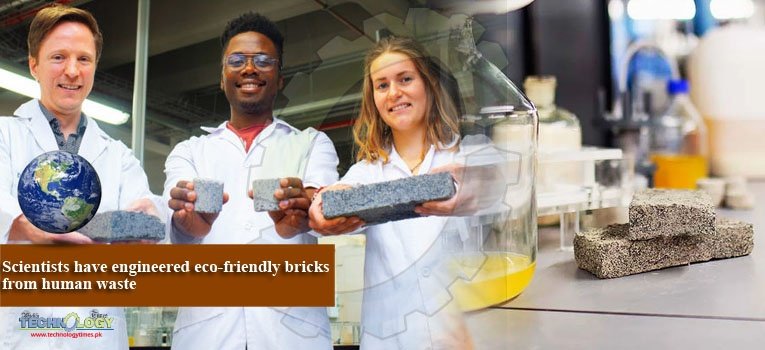For the first time, young scientists have manufactured eco-friendly bricks, described as ‘liquid gold’, made up of liquid human waste.

Students from the University of Cape Town (UCT) have successfully made environmentally-friendly bio-bricks from human urine mixed up with sand and bacteria.
The products were combined together in a process that lets the bricks to solidify at room temperature instead of normal bricks that are required to be baked in high-temperature kilns (around 1,400°C) to generate huge amounts of carbon dioxide. Bio-bricks, instead, produce nitrogen and potassium.
According to Dyllon Randall “It’s essentially the same way that coral is made in the ocean.”
The liquid waste was harvested from men’s toilets from which a solid fertilizer was made. The leftover liquid was then used in a process known as ‘microbial carbonate precipitation’ for growing the bio-bricks.
The bacteria used then produced an enzyme that broke down the urea fond in the urine and formed calcium carbonate, which bind the sand into rock hard, grey bricks.
Moreover, the strength and the shape of the bio-bricks can be altered too. The bricks usually take four to six days to grow, the number that will be increased if stronger bricks are required.
When started this process last year, achieved the same compressibility strength as a 40% limestone bricks.
Just a few months later we’ve doubled that strength now just by changing the material we put into the mould and allowing the bacteria to cement the particles for longer – with zero heat, at room temperature.
Moreover, according to Daily Mail, the process accounts for less than 1% of domestic waste but contain 80% of nitrogen, 56% of phosphorus, and 63% of potassium.
This achievement can create paradigm shifts as to how we see waste and the up-cycling of it. For this instance, you take something that is considered a waste and make multiple products from it. You can use the same process for any waste stream. It’s about rethinking things.